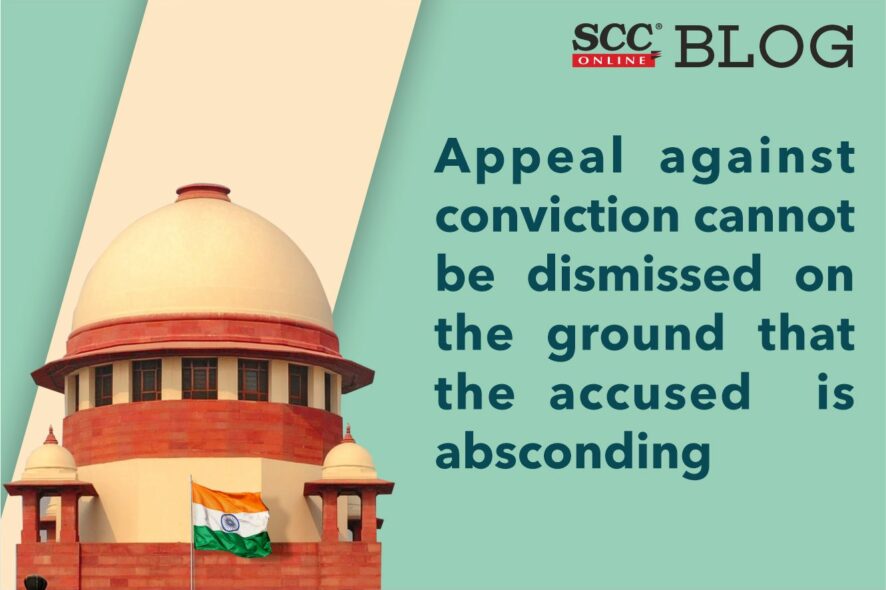Supreme Court: In furtherance of Criminal Justice, the bench of Abhay S. Oka* and MM Sundresh, JJ has held that an appeal against conviction filed by an accused under Sub-Section (2) of Section 374 of the Code of Criminal Procedure, 1973 cannot be dismissed on the ground that the accused is absconding.
In the case at hand, the accused was, on 04.09.2009, convicted by the Sessions Court under Sections 302 and 120B of the Penal Code (IPC) and Section 27(1) of the Arms Act, 1959. An appeal was preferred by the accused before the High Court of Patna. He was later declared absconding. On 25th August 2015, a Division Bench of the Patna High Court dismissed the appeal against conviction without adverting to the merits of the appeal on the ground that the accused was absconding.
The High Court held that though the remedy of an appeal is a valuable right, the appellant forfeited his right to prefer an appeal the moment he escaped from the custody and flagrantly abused the process of law. Such deliberate act on the part of the appellant amounts to defiance of the criminal administration of justice. The High Court went on to observe that,
“… the circumstances of the case before it were exceptional and, therefore, the Court was required to deviate from the settled principle of law that once the appellate court has refused to dismiss the appeal summarily, the same must be heard on merits.”
The Supreme Court, however, did not appreciate such approach of the High Court where it had itself recorded that it was deviating from the settled position of law.
The Court observed that the anguish expressed by the High Court about the brazen action of the appellant of absconding and defeating the administration of justice can be well understood. However, that is no ground to dismiss an appeal against conviction, which was already admitted for final hearing, for non-prosecution without adverting to merits.
The Court, hence, set aside the impugned judgment and remanded the matter to the High Court for consideration on merits.
Considering the fact that the appeal against conviction under Section 302 of IPC is of the year 2009, the Court said that necessary priority deserves to be given to the disposal of the appeal. Requesting the High Court to ensure that appeal is disposed of as expeditiously as possible, preferably within a period of six months, the Court held that
“If the appeal could not be heard within a reasonable time, in that event, the appellant will have to be granted a liberty to apply for suspension of sentence.”
[Dhananjay Rai v. State of Bihar, 2022 SCC OnLine SC 880, decided on 14.07.2022]







